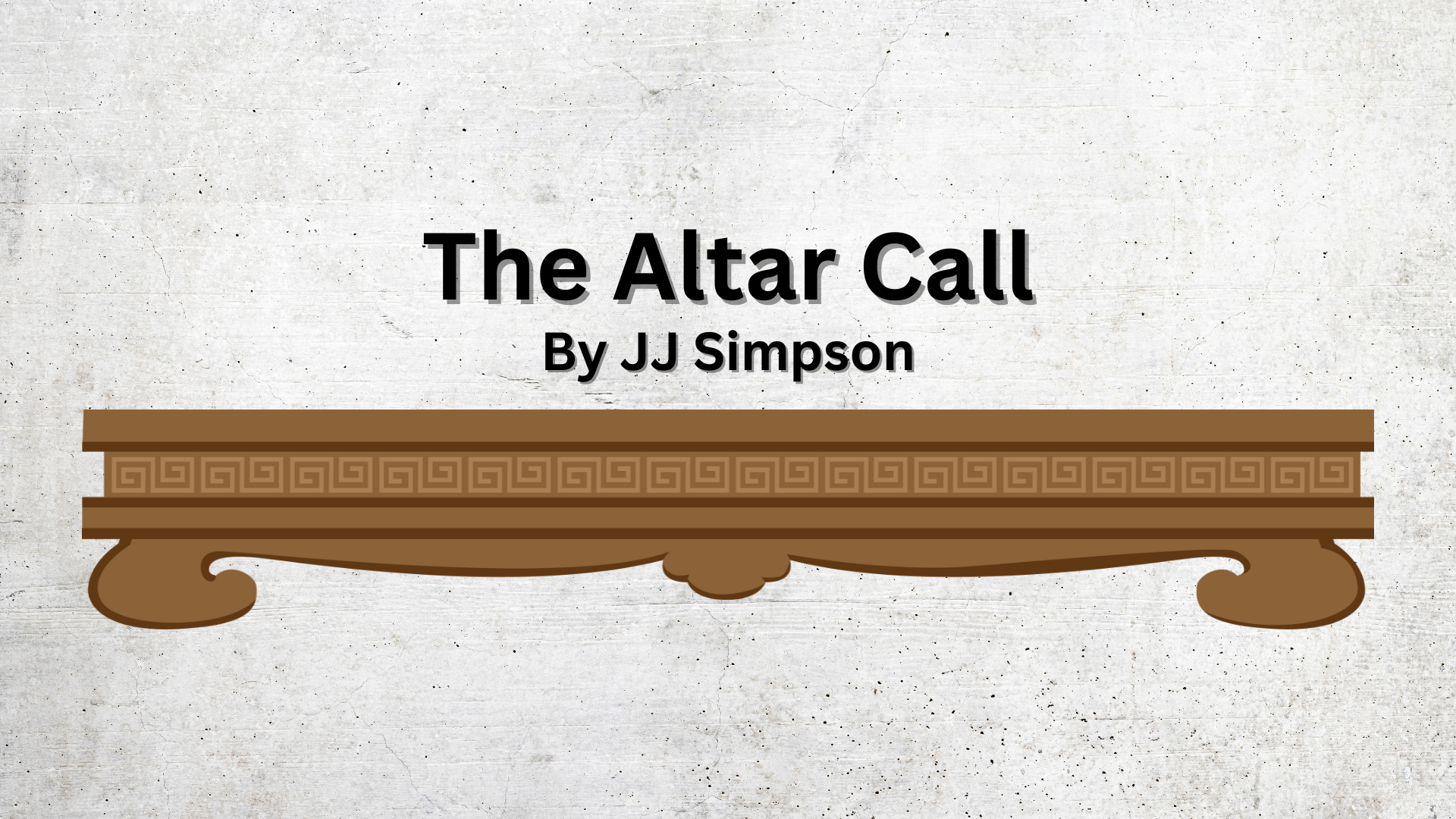The Altar Call By JJ Simpson
The church I grew up in always used the same order every Sunday without fail. We would open with a song, read a scripture together, sing a few more songs before the sermon, and then every week, without fail, there would be an invitation. It was a small country church with not a lot of new people walking through the doors every week. There would be the same people in the building every week. Yet, we still had to have the invitation in case someone wanted to come forward to be baptized or commit themselves to Christ. As a kid, I didn't read much into this space during the Sunday morning gatherings; they were normal and just something we always did.
As I got into college and gained both distance from my home church and a deeper understanding of the elements that make up the Sunday morning gathering, I began to distance myself from many of the practices of that church. Now that I'm a bit older, I don't look back on some of those practices as harshly as I did in college. I used to deeply dislike using the same order every week, and now I understand the comfort and security that practice brings. But there is still one element that I continue to distance myself from and at this point don't see a need to have: the invitation, or altar call, or as a church I attended for years called it, the time of commitment.
Let's pause here for a moment and define this practice, as I realize some of you reading this might not have grown up or been a part of a church that actively uses this element. To put it plainly, the Altar Call (as it is most commonly referred to) is a time after the sermon when the preacher uses that space to end their sermon with a call to commit your life to Christ. Historically altar calls are born out of the revivalist movements of the early 19th century where big tent revivals would see large numbers of people coming forward to commit themselves to Christ. In contemporary practice, the altar call is usually a time when the musicians can come back up and play a slower song while people come forward to be prayed over or for those who want to be baptized to have time to come forward. Typically though the preacher will say something like, "And now as we come to our time of commitment I want to encourage any of you who are feeling God in this moment to come forward and dedicate your life to Christ today."
Whatever language churches use, the idea is consistent. The sermon you just heard was so powerful that some of those who are listening have no choice but to come forward and dedicate their lives to Christ through baptism. In the 30ish years, I've been cognizant of this element, I can count on my hands the number of times someone has spontaneously gone forward. The vast majority of the time these "moments" are pre-planned and everyone involved is aware of what is happening, which leads me back to my point (if there ever was one); if these altar call moments are pre-planned, then what is the purpose of this practice?
I think the Altar Call is ridiculous and unnecessary, not only because of the points listed above but more so because this moment pre-supposes two things about the purpose of the Sunday morning gatherings. One, it assumes that the only point of Sunday is to convert people to Christianity. The presupposition is that in churches where the same people are attending week in and week out with no visitors attending for months, they still have the altar call. As though those in attendance still need to be converted and baptized. Second, it requires no accountability on either the church or the one coming forward to grow in faith together. The point of the altar call is to get people to the point of baptism and then it's on the newly baptized to grow in their faith. This is not to say that every church that has an altar call forgets about those who commit themselves to Christ, but the practice of the call itself forgoes any accountability in favor of "simple faith."
At this point in my life, I am a firm believer that there does not have to be an explicit call to repentance, or a literal altar call for someone to decide to become a Christian. Reflection, conversation, and merely being in the presence of a believing community can achieve this better than a simple call can do. The call to follow Christ, to become a believer, or whatever language you want to use for this process, is not a one-and-done moment that can merely be completed by responding to an altar call. It is a lifelong commitment that one continually reaffirms throughout their life, through fellowship in the community of believers and continual participation in the act of communion.
To sum this up, the altar call is not some magical moment that makes someone a believer. It is nothing more than a moment that can begin, as Eugene Peterson puts it, "a long obedience in the same direction," one focused on Christ.

